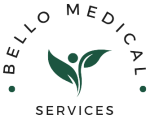Clinical trials are an essential part of medical progress, but misconceptions can sometimes prevent people from participating in these groundbreaking studies. Understanding the truth behind these myths can help you make informed decisions about joining a clinical trial. Let’s explore and debunk some of the most common myths surrounding clinical trials.
Myth 1: Clinical Trials Are Unsafe
Safety is a top priority in clinical trials. Before a study begins, it undergoes thorough review and approval by regulatory authorities and ethics committees. Participants are monitored closely throughout the trial, and every step is taken to minimize risks. Clinical trials adhere to strict safety standards to protect participants while advancing medical research.
Myth 2: Clinical Trials Are Only for the Seriously Ill
While some trials target specific medical conditions, many are open to healthy volunteers as well. These studies often focus on preventive measures, lifestyle changes, or new diagnostic methods. Clinical trials welcome participants from various health backgrounds to gather diverse data that benefits a broader population.
Myth 3: Participants Are Treated as Test Subjects
Clinical trials prioritize the well-being and dignity of every participant. You are more than a “test subject”; you are a partner in research. Trials are designed with care to respect participants’ rights, provide clear information, and ensure a comfortable experience. Your contribution is vital to shaping the future of medicine.
Myth 4: Clinical Trials Are a Last Resort
Contrary to popular belief, clinical trials are not only for those who have exhausted all other options. They often provide early access to promising treatments and therapies that are not yet available to the general public. Participating in a trial can be a proactive choice for individuals seeking innovative medical solutions.
At Bello Medical Services, we are committed to demystifying clinical trials and empowering participants with accurate information. By dispelling these myths, we hope to encourage more people to take part in these transformative studies, paving the way for medical breakthroughs that benefit us all.

